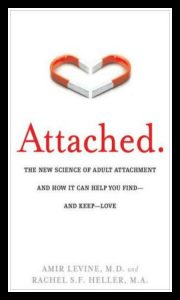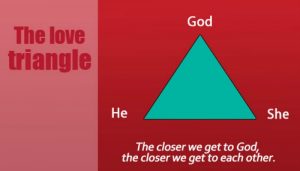What God (and Science) Taught Me after My Fourth Breakup with the Same Man
You want a strong, happy, eternal marriage. That’s a tall order, and you know it. When it comes to heartbreak and struggle, you’ve been through the wringer, but so far, there’s no ring. Or worse, the ring is in danger of coming off. You’re not sure why that is. Where is the love?
A Few Disclaimers
Before we get started, allow me to offer three disclaimers.
First of all, this article isn’t a cheap, entertaining read, and there are no quick fixes here. This information is based on decades of scientific research on healthy and unhealthy relationships as well as eternal truths learned through scripture, personal experience, and revelation.
This information is based on decades of scientific research on healthy and unhealthy relationships as well as eternal truths learned through scripture, personal experience, and revelation.
Secondly, I don’t know your story. If we were talking face-to-face, I would listen to you, empathize, and try to judge whether any of these concepts will help you, and then which ones. As it is, I trust you to be the judge.
 Third, applying these concepts involves soul-stretching commitment and humility. It can sometimes be rather painful. Truth hurts. It also heals. Sometimes you have to experience the first before you get to the second. If you are ready for that, read on.
Third, applying these concepts involves soul-stretching commitment and humility. It can sometimes be rather painful. Truth hurts. It also heals. Sometimes you have to experience the first before you get to the second. If you are ready for that, read on.
My Story
So, brave readers, let me tell you a story.
Once upon a time, I visited a BYU YSA ward in Provo. A certain member of that ward caught my eye. Later that evening, I attended Ward Prayer and met him. Within the first five minutes, I knew I was a goner.
 Two and a half years later, we had officially been in and out of a relationship four times, and unofficially more times than I can count. We loved each other, but we just couldn’t seem to work it out.
Two and a half years later, we had officially been in and out of a relationship four times, and unofficially more times than I can count. We loved each other, but we just couldn’t seem to work it out.
After our fourth official breakup, I was pondering and praying for understanding and healing for what may have been the bajillionth time. Then I came across a YouTube video that reminded me of a psychological concept I learned in college called Attachment Theory. A quiet but piercing voice inside me whispered, “You need to look into this.”
So I did. I read some online articles, watched some videos, and read a book called Attached, written by psychologists Amir Levine and Rachel S.F. Heller. 
And I finally understood that this is what had been happening for two and a half years; I just didn’t know it.
Attachment Theory Basics
Attachment Theory is probably the most advanced relationship science in existence. It originates from the work of John Bowlby in the 1950s. You’ll find it in almost any psychology textbook in America. Attachment Theory proposes that there are three basic attachment styles in relationships:
Anxious people are preoccupied with the relationship and worry about their partner loving them back.
Avoidant people associate intimacy with a loss of independence and frequently try to curtail closeness.
Secure people are comfortable with intimacy and are usually warm and loving.
You can probably guess which style you want to have.
Attachment Theory is traditionally framed in the context of how someone’s relationship with one’s parents affects their romantic relationships in adulthood. However, studies report that your attachment style can come from anywhere and can apply to basically any close relationship – family, friends, or love interests.
Most of us have unique combinations of security, anxiousness, and avoidance in each of our relationships. However, we usually lean one way or another. Whichever way you lean represents your attachment style. In the book Attached, you can find out the attachment style of both you and any potential partner by taking a test. There are also other assessments available online.
If you suspect that you may be anxious or avoidant, please don’t think that means you are sentenced to a life of eternal singledom. There is tremendous hope for you. Attachment styles can and do change.
Studies estimate that 50% of people have a secure attachment style, while 20% are anxious and 25% are avoidant; the final 5% is uncategorized. Most of the 50% of people who are secure are already in a relationship. After all, they know how to hold onto love.
That means the dating pool is filled with people who are anxious or avoidant. In fact, believe it or not, a common and not-so-healthy relationship is the pairing between anxious and avoidant partners. Even if you are secure, your partner might not be. Learning about Attachment Theory will help you help them.
A consistent and in-depth understanding of the behaviors associated with your attachment style and that of your partner is half the battle; you’ll probably start to change by default. The book Attached is the best resource I can recommend for the layman’s understanding of Attachment Theory in romantic relationships. The authors also recommend specific, scientifically-backed strategies for turning both anxious and avoidant attachment styles into secure attachments.
If you are already in a relationship, this book can also help you and your partner decide whether you want to change your attachment dynamic together or start over with someone new. You may also consider going to a therapist with a background in Marriage and Family Therapy or Attachment Theory.
Attachment Theory from a Gospel Perspective
“True doctrine, understood, changes attitudes and behavior. The study of the doctrines of the gospel will improve behavior quicker than a study of behavior will improve behavior.”
-Boyd K Packer
When I was in college getting a degree in psychology, this quote was emphasized to me over and over through various random sources. Apparently, God wanted me to remember it.
So far we’ve mostly just talked about the study of behavior. While decades of information of solid scientific research is extremely valuable, it’s often simply not enough to actually change.
As I have been actively working on developing a more secure attachment, I’ve found God repeatedly teaching me four related gospel principles. I am eager to share them with you. I testify that whether you have an avoidant or anxious attachment, these principles are everlastingly true. However, I want to reiterate again that I don’t know the specifics of your story, and I respect your ability to judge for yourself how exactly to apply these ideas to your life.
It is Not Good for Man to Be Alone
And the LORD God said, It is not good that the man should be alone; I will make him an help meet for him.
-Genesis 2:18
Our spirits and minds are naturally designed to need other people. It is not good for us to be alone. In fact, God designed our world to motivate us to work together. The Church, marriages, families, and society are based upon this principle. We are to a degree dependent upon one another for food, clothing, shelter, spiritual nourishment, procreation and emotional support.
Those with avoidant tendencies are by definition uncomfortable with the idea of needing people. People let us down, so it is better to depend only upon the self; the avoidant person tries to be as self-sufficient as possible. However, we often find that we are just as human as anyone else; we fail to accomplish our goals or to be true to the personal promises we have made. And the degree to which we isolate ourselves from others, we often find ourselves feeling empty and depressed.
Those who struggle with an anxious attachment need other people too much. We might need help maintaining our emotions, seeing our self-worth, or even making a living on our own. Others may try to make us feel ashamed for acting this way; they may subtly send the message that it is actually not good to ask for help. The truth is that asking for help can be empowering, but only when balanced with a desire to develop self-reliance.
The key to developing a secure attachment is finding balance. The balance between independence and codependence is interdependence. Interdependent people are powerful forces in the world, uniting with others to accomplish great good.
Trust in the Lord
Trust in the Lord with all thine heart; and lean not unto thine own understanding.
-Proverbs 3:5
Attachment styles are all about trust.
Those with an anxious attachment style unconsciously place the highest trust and power in the hands of a partner. We do not trust ourselves to handle our own emotions about the relationship; therefore, we reach out to others for reassurance and advice.
Those with avoidant attachment styles tend to place the highest level of trust in the self. After all, that is the best way to avoid getting hurt, right?
Religious people with secure attachment styles place trust first and foremost in the Lord, whose judgment, wisdom and integrity are infinitely better than that of any human being.
As we discussed in the previous section, it is important to depend on ourselves and others—to the degree that this trust is earned. These first two principles, “It is not good for man to be alone” and “Trust in the Lord” are really just two sides of the same coin.
When we put our trust in the Lord first, He teaches us the degree to which we can trust ourselves and others. He teaches us how to recognize signs that either we or another person are acting dishonestly or being undependable, and how to set appropriate boundaries. Conversely, He helps us to act with integrity and to extend trust to those who are trustworthy.
Charity: The Pure Love of Christ
Charity suffereth long, and is kind, and envieth not, and is not puffed up, seeketh not her own, is not easily provoked, thinketh no evil, and rejoiceth not in iniquity but rejoiceth in the truth, beareth all things, believeth all things, hopeth all things, endureth all things.
-Moroni 7:45
The world’s definition of love and the Lord’s definition are two different things.
The world sees love as a feeling; the Lord sees love as a choice. Avoidant tendencies may tempt us to dodge or leave a relationship when we’ve “lost that loving feeling”. We can curb these temptations by demonstrating languages of love, as well as forgiving weaknesses, developing selflessness and communicating. Above all, we can pray for charity. In time our capacity for this gift will increase and our hearts expand.
The world sees love as two halves finding wholeness in one another; the Lord teaches us that true wholeness comes first through Christ. Our relationship is like a triangle; the closer  we come to Christ, the closer we come to each other. For someone who is naturally anxious, it can be tempting to mistake fear and longing for love. When others let us down, this can lead to feelings of jealousy, impatience, and a preoccupation with one’s own needs. The reality, however, is that only Christ can perfectly provide what we need. His love is always there; we only need to remove the pavilions of our hiding places to feel it.
we come to Christ, the closer we come to each other. For someone who is naturally anxious, it can be tempting to mistake fear and longing for love. When others let us down, this can lead to feelings of jealousy, impatience, and a preoccupation with one’s own needs. The reality, however, is that only Christ can perfectly provide what we need. His love is always there; we only need to remove the pavilions of our hiding places to feel it.
In his book, The Four Loves, C.S. Lewis writes about four kinds of love: the love of objects or places, friendship or brotherly love, romantic love, and charity, or godly love. He teaches that when we have an abundance of charity, all the other loves become more real.
As we pray to be filled with charity, the pure love of Christ, we find that God fills the emptiness in ourselves and increases our capacity to actively love others – to suffer with them, to be kind, to rid ourselves of envy, pride, impatience, and selfishness, to rejoice in truth, to be patient, to have faith and hope and to endure all things.
Agency and the Atonement of Jesus Christ
“And the Messiah cometh in the fulness of time, that he may redeem the children of men from the fall. And because that they are redeemed from the fall they have become free forever, knowing good from evil; to act for themselves and not to be acted upon…”
-2 Nephi 2:26
Growth requires free will. But free will for imperfect beings also means sin and pain. Only a perfect Savior can redeem us.
If you are anxious or avoidant, there’s a reason for it: you’ve been hurt. Facing that pain can be excruciating. Here’s the thing: Jesus Christ is here to rescue you. All you have to do is take the blindfold off and walk toward His outstretched hands. God will unveil His face to you, in His own time and His own way.
Ironically, grasping those outstretched hands gives us increased power to wield our wills. When others hurt us, we act instead of being acted upon, and we are more resilient. We are no longer victims of circumstance; we are agents, and as such, we build strong, purposeful, eternal relationships. We are free.
If you have any further thoughts or questions about this topic, feel free to comment in the space below. You can also email me at mblakely@moregoodfoundation.org.


